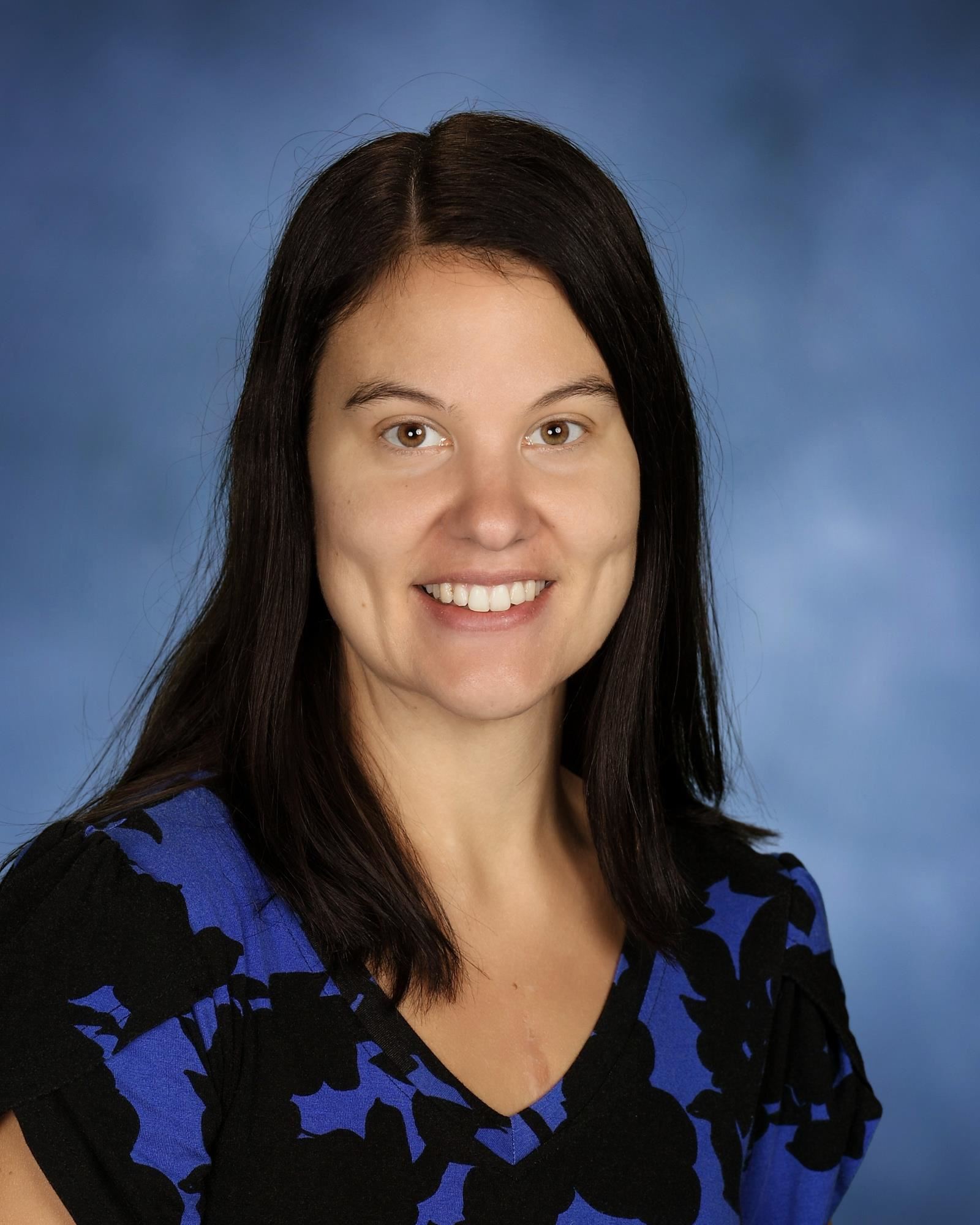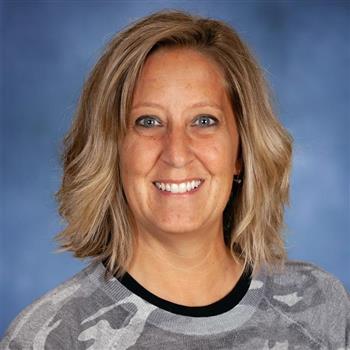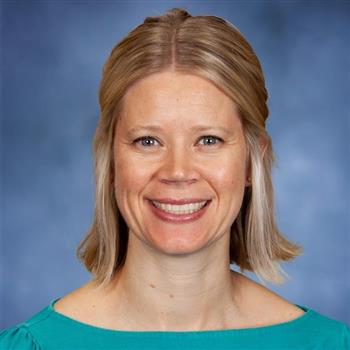- Early Learning Services
- Teacher Pages
About Teachers

Phone:
Email:
Degrees and Certifications:
Bachelors of Science Early Childhood Education with emphasis is 5-21 Developmental Cognitive Disabilities, Early Childhood Special Education Licensure
Ms. Dailey
Special Education Teacher
I enjoy partnering with families to help their children to learn, grow, and thrive.

Phone: 952-492-2336
Email:
Degrees and Certifications:
Bachelor's Degree in Developmental Cognitive Disabilities from Minnesota State University, Mankato, Masters Degree in Autism Spectrum Disorders from Minnesota State University, Mankato
Mrs. Flicek
Special Education Teacher - ASD
I enjoy being able to make relationships with students and help them grow throughout their Elementary school years
Mrs. Flicek's Links
-
Quick Links

Phone: 952-492-2336
Email:
Degrees and Certifications:
Mrs. Hess-Norskog
Ocupational Therapist
A valued Jordan Staff member since 2012.

Phone: 952-492-2336
Email:
Degrees and Certifications:
Bachelors Degree in Special Education: Emotional/Behavior Disorders (EBD) and Learning Disabilities (LD) from Minnesota State University Moorhead, Masters Degree in Teaching and Learning from St. Mary's University
Mrs. Holzwarth
Special Education Teacher - EBD
I chose to pursue a career in teaching because I love working with kids, I enjoy that everyday is a new adventure.
Mrs. Holzwarth's links
-
Quick Links

Phone: 952-492-2336
Email:
Degrees and Certifications:
Master's Degree in Communication Disorders from Mankato State University
Mrs. McDonald
Special Education Teacher
I love working with kids and love seeing how excited they get when they realize they have learned something new!!!
Mrs. McDonald's Links
-
Assistive Technologies (AT)
-
Assistive Technology (AT)
According to the Individuals with Disabilities Education Act (IDEA), Educators are required to consider assistive technology for all children with Individual Education Plans (IEPs), (§34 C.F.R 300.346.2.(v)), and to provide assistive technology for students who require it for Free Appropriate Public Education (FAPE) (§34 C.F.R. 300.6 (b)).Low-tech Examples
- pencil grips
- specialty paper
- highlighting pens and tape
- planners
- Adapt textbooks to meet needs of students by highlighting information in the book
- Permit oral examinations, taped responses or provide a reader or scribe
- Allow student to use math calculators, use talking calculators, word processors, dictionaries and spell checkers during examinations
- Give student option to write exam in quiet room if needed
- Provide extra time for student to complete test
- Vary test format (e.g. Multiple choice or short answers)
- NCR or non-carbon paper for making a copy of notes
- If student has difficulty copying from the board eliminate board copying
- Provide a photocopy of assignment
- Provide copy of homework assignment
- Have designated spot on board where assignments are noted well before the end of school day
- Ask a fast writer to be student's homework assignment secretary
Mid to Hi-tech Examples
- tape recorders
- talking calculators
- portable keyboards
- electronic spell checkers and dictionaries
- reading systems that use a computer, scanner, and software to read scanned book pages out loud
- speech recognition software that allows a computer to operate by speaking to it
- mind mapping / outlining software
-
-
Language Activities for Practice at Home
-
Language Activities for Practice at Home
Language
- Create a mystery box. Place items in a pillowcase or cardboard box with a cut out big enough for the child to reach into. Have the child reach in, choose one item, and try to guess what it is. You may have the child close his eyes for this game to rely only on the way the item feels. Once a guess has been made, you can talk about why the child made his particular guess.
- Encourage your child to “read” the pictures in a book to you. Prompt by asking some open - ended questions about what is happening and what may happen next.It may be helpful to restate a child’s statement to correct a grammatical mistake (“Him go” “He goes”) or model another appropriate word (“The boy in the bath.”“He is in the bath”).
Vocabulary
- Reading aloud to your child allows your child to hear new and less common words
- Have the child find a particular picture within a larger picture to work on understanding new words
- When you are teaching a new word, provide information about that word. Tell what it does, when you use it, who would use it, where it would be found, etc.
Basic Concepts
- For teaching basic concept vocabulary, choose one word within a basic concept. For example, you could choose “in”. Then find all the things you can that are “in” something else. This can be a game like “I Spy”
- Another way to teach or reinforce basic concepts is to identify the concepts in the natural environment. For example, point to bird in the tree or a cat hiding behind a couch.
- During snack time, put different numbers of small snack foods into different piles to teach quantity concepts of more, less, equal, etc.
Listening
- Have your child help with the shopping. You can ask your child to remember certain items that are needed in the store
- Play a following directions game by giving your child a direction then watching to see if he does it correctly. Ask him to move to different places within a room or act out a movement to keep interest. Once the child understands the game, he can start to give you some directions to follow. If you give this game a crazy name the child will be more interested. Start with one - step or one element and increase as the child becomes more skilled.
- Ask questions about a story that has been read or about a shared activity
-
-
Role of SLP
-
What is the Role of the SLP?
The Role of an E-SLP (Educational Speech Language Pathologist) is to work with identified speech-language disorders, assess students with whom teachers or parents have a special speech or language concern and to consult with parents and regular education teachers about speech-language development and how disorders may affect academic progress.
Below is a list of common speech and language disorders with a brief explanation of each:
Speech Disorders
• Articulation - the way we say our speech sounds
• Phonology - the speech patterns we use
• Apraxia - difficulty planning and coordinating the movements needed to make speech sounds
• Fluency - stuttering
• Voice - problems with the way the voice soundsLanguage Disorders
• Receptive Language - difficulty understanding language
• Expressive Language - difficulty using language
• Pragmatic Language - social communication; the way we speak to each otherOther Disorders
• Deafness/Hearing Loss - loss of hearing; therapy includes developing lip-reading, speech,
and/or alternative communication systems
• Oral-Motor Disorders - weak tongue and/or lip muscles
• Swallowing/Feeding Disorders - difficulty chewing and/or swallowing
-
-
Speech Activities for Practice at Home
-
Speech Activities for Practice at Home
- When riding in the car, find things with your special sound
- When looking at books or magazines, find pictures with your special sounds
- At the grocery store, see how many foods you can find with your special sounds
- How many animals, foods, kinds of cars, sports, famous people, TV shows, etc can you think of that have your special sound?
- Cut out pictures in old magazines that have your sound
- When assisting with cooking, find ingredients with your speech sound
- Tell someone about a TV show using your sound
- Read aloud to someone using your sound
- Re-tell a story or something that happened during the day using your sound
- Have a special time of day to practice such as bedtime or bath time, etc. Sometimes sound practice may feel a bit stressful for your child. Mealtime is a good time for some children to practice, but is a bad time for other children. Having other people present for speech practice is not always a good idea.
- Have your parents fill a box full of objects that contain your speech sound. You have to feel around without peeking to guess what the object is.
- Play guessing games by giving clues/ descriptions about an item that contains the special sound
- Play “I Spy” where your child finds objects in the room based on clues you give
- Play “Bag of Cards”. Put pairs of cards with the special sound in a bag. Take turns picking cards out of the bag, trying to get pairs
- Suitcase Game (no cards needed). “I’m going on a trip and in my suitcase I’ll take (word with special sound). Next player repeats sentence with the first item and adds new item for the suitcase. Continue adding on and repeating in order!
-

Phone: 952-492-2336
Email:
Degrees and Certifications:
Bachelor of Science in Physical Therapy from Bradley University, Peoria, IL and Doctorate of Physical Therapy from EIM Institute of Health Professions, Louisville, KY
Ms. Rakers
Physical Therapy
I love to put my PT skills into practice in a "real-life" setting and see my students make progress from day to day and year to year.

